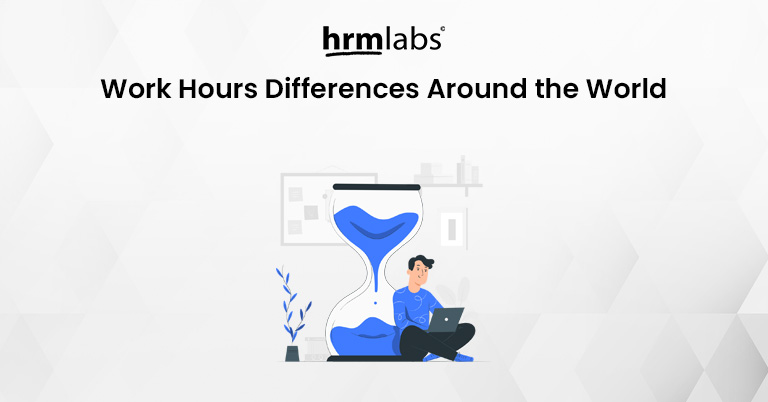Ever wondered how much time people in different countries spend working? It might surprise you to know that there’s a wide range of work hours across the globe. From the relaxed 35-hour workweek in France to the notoriously long hours in Japan, the way we work varies greatly from nation to nation.
Let’s dive into some interesting trivia about work hours around the world and explore what these differences reveal about each country’s unique approach to productivity and employee rights.
The French Way: 35-Hour Workweek
France is famous for its 35-hour workweek, a law introduced in 2000 to reduce unemployment and enhance the quality of life. The idea behind this initiative was to create more jobs by encouraging companies to hire additional workers rather than overworking their existing staff. This approach also aimed to improve employees’ overall well-being. Ensure they had ample time for leisure, family, and personal pursuits. Despite this official cap, some sectors and companies negotiate longer hours, but the spirit of the 35-hour workweek remains a strong symbol of France’s commitment to work-life balance.
Japan’s Long Working Hours: A Culture of Dedication
On the other end of the spectrum is Japan, where long working hours are ingrained in the culture. Known for its demanding work ethic, Japan has some of the longest working hours among developed countries. It’s not uncommon for employees to work late into the evening, often staying longer than their contracted hours without additional pay. This practice, known as “karoshi,” or death from overwork, has raised concerns about employee health. Prompted some companies to implement measures to reduce overtime. The cultural emphasis on dedication and loyalty to one’s employer, coupled with economic pressures, has kept Japan’s work hours notoriously long.
Why Do Work Hours Differ Across Countries?
The differences in work hours around the world can be attributed to a mix of cultural, economic, and legal factors:
- Cultural Norms: In countries like Japan and South Korea, long hours are often seen as a sign of commitment and loyalty. In contrast, countries like Denmark and Norway prioritize work-life balance, believing that shorter work hours can lead to increased productivity and happier employees.
- Economic Needs: In developing nations, longer hours might be a necessity due to lower wages and a need to make ends meet. In contrast, wealthier countries with robust social safety nets and higher wages can afford shorter workweeks.
- Legal Frameworks: Government policies and labor laws also play a significant role. For example, the European Union’s Working Time Directive mandates a maximum of 48 working hours per week. Including overtime, to protect workers’ health and safety. Meanwhile, in many parts of Asia, labor laws might be more lenient, allowing for longer hours and more overtime.
Singapore’s Approach to Work Hours
In Singapore, the approach to work hours falls somewhere between these extremes. The standard workweek is typically around 44 hours, with provisions for overtime pay if employees beyond this limit. While not as stringent as France’s 35-hour cap, Singapore’s regulations ensure that employees are compensated for extra hours worked. Aiming to strike a balance between productivity and fair labor practices.
However, like in many other Asian countries, a culture of working long hours is prevalent in Singapore. Many professionals often work beyond the stipulated hours due to high job demands and a competitive environment. This can have significant implications for employee satisfaction, stress levels, and overall well-being.
What Can Singapore Learn from Global Practices?
By examining how other countries manage work hours, Singapore can learn how different strategies affect employee satisfaction, productivity, and well-being. Implementing flexible work arrangements and promoting work-life balance could boost employee morale and health without sacrificing productivity.
Additionally, embracing technological solutions to monitor work hours and manage workloads effectively could help businesses ensure compliance with labor laws and prevent burnout. Companies could consider implementing HR and payroll systems like HRMLabs to automate overtime calculations, manage employee schedules, and provide transparent reporting on work hours. This not only helps in maintaining fairness but also boosts morale and trust within the workforce.
Conclusion
The way countries manage work hours reflects their unique cultural, economic, and legal landscapes. While there is no one-size-fits-all solution, the global diversity in work hour practices offers valuable lessons. For Singapore, balancing efficiency with employee well-being is key to fostering a productive and satisfied workforce. By learning from global examples and leveraging modern HR solutions, Singaporean businesses can navigate the challenges of work hours while promoting a healthy, motivated, and fair working environment.
Managing employee work hours across different regions can be challenging, especially with remote teams. HRMLabs simplifies this process with an integrated attendance and scheduling system that connects seamlessly with payroll. Whether your team is local or spread across various countries, HRMLabs ensures that every hour worked is tracked accurately, schedules are managed efficiently, and payroll is calculated correctly.


